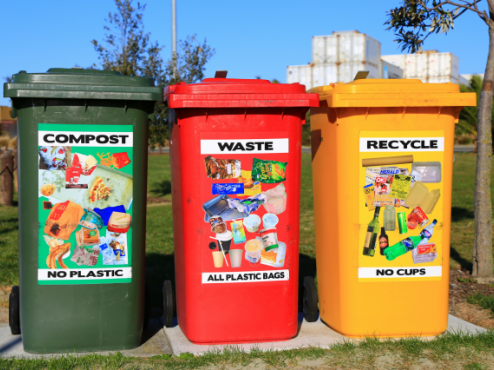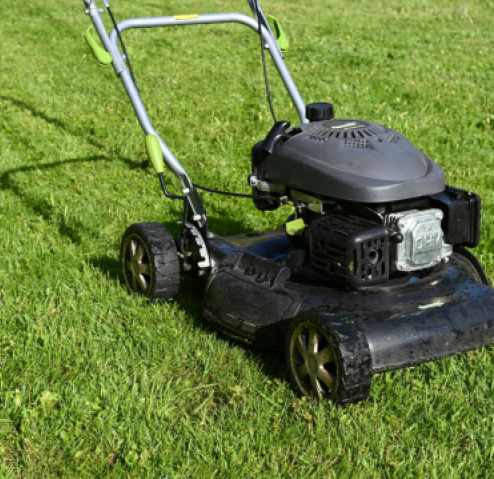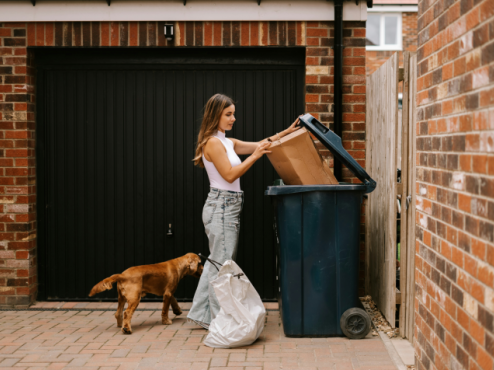How to Recycle and Why You Should Do It in Broomfield, Colorado
In Broomfield, Colorado, recycling is more than just a daily habit—it’s a way to protect the environment, support the local community, and reduce waste. With a strong commitment to sustainability, Broomfield residents have access to several recycling options and resources to help minimize waste and conserve natural resources. This guide covers the benefits of recycling, tips to get started, and information on how to use Broomfield’s recycling resources effectively.
1. Why Recycling Matters in Broomfield, Colorado
Recycling in Broomfield is essential for reducing waste, conserving resources, and protecting the community’s natural surroundings. Broomfield residents can help reduce landfill waste, limit pollution, and lower the demand for new resources. Here’s why recycling is so important in Broomfield:
- Conserving Local Resources: Recycling materials reduces the need to extract raw materials, which helps protect local natural resources.
- Reducing Landfill Strain: By recycling, Broomfield residents help reduce the amount of waste going to landfills, which helps extend their lifespan and limits environmental contamination.
- Supporting Local Jobs: Recycling initiatives help create local jobs in collection, processing, and recycling facilities.
- Minimizing Pollution: Recycling reduces greenhouse gas emissions by using less energy compared to producing new products from raw materials.
- Building a Sustainable Community: Recycling encourages sustainable practices within the community, promoting eco-friendly habits for future generations.
2. What Can You Recycle in Broomfield?
Recycling guidelines in Broomfield vary depending on the type of material. Here’s a list of items typically accepted in Broomfield’s recycling programs:
- Paper: Newspapers, office paper, magazines, junk mail, and cardboard.
- Plastic: Plastic containers labeled with recycling symbols #1 through #7, such as water bottles, milk jugs, and other food containers.
- Metals: Aluminum cans, steel cans, and other non-hazardous metal products.
- Glass: Glass bottles and jars are generally accepted.
- Electronics: Broomfield has designated programs for e-waste like phones, computers, and tablets to prevent toxic materials from entering the environment.
- Textiles: Some centers accept clothing, shoes, and other textiles for repurposing or donation.
It’s essential to confirm recycling guidelines with the City of Broomfield or your local waste management provider, as rules can vary.
3. Steps to Start Recycling in Broomfield
Establishing a home recycling routine is easy with a few simple steps. Here’s how to start recycling in Broomfield:
Step 1: Set Up a Recycling System at Home
Organize your recycling by setting up designated bins or containers for items like plastic, paper, and metal. This helps with quick and easy sorting.
Step 2: Familiarize Yourself with Local Guidelines
Review Broomfield’s recycling guidelines to ensure you’re sorting items correctly and avoiding common recycling mistakes. Local government websites and recycling centers are great resources.
Step 3: Rinse and Prepare Items
Cleaning recyclables is crucial to prevent contamination. Rinse containers to remove any residue, which improves the quality of the recycled material.
Step 4: Embrace the Three R’s: Reduce, Reuse, Recycle
Consider reusing items when possible and buying products with minimal packaging to reduce waste before it even begins.
4. Recycling Tips for Different Materials
Each material has its own recycling needs. Here’s a guide to help you recycle effectively in Broomfield:
- Paper and Cardboard: Break down boxes to save space and ensure they’re free from food residue. Greasy pizza boxes, for example, aren’t recyclable.
- Plastic: Rinse plastic containers and only recycle those with accepted symbols. Avoid recycling bags or film plastics in regular bins, as they require specialized handling.
- Glass: Rinse bottles and jars before recycling. Check with your recycler, as some programs may limit glass colors.
- Metal: Clean metal cans to avoid contamination. Recycle aluminum, steel, and other non-hazardous metals.
- Electronics: Look for e-waste recycling events or designated drop-off locations in Broomfield for items like old phones and computers.
5. Where to Recycle Hazardous and Special Items in Broomfield
Some items require specialized recycling due to their hazardous nature. Here’s how to safely dispose of them in Broomfield:
- Batteries: Broomfield has drop-off locations for recycling batteries, as they contain chemicals harmful to the environment.
- Appliances: Large appliances such as fridges, stoves, and microwaves need to be taken to facilities equipped for safe recycling.
- Paint and Hazardous Waste: Broomfield holds collection events for safe disposal of paint, pesticides, and cleaning chemicals.
- Light Bulbs: Some hardware stores in Broomfield accept fluorescent and LED light bulbs, ensuring they’re disposed of properly.
6. Incorporating Recycling into Daily Life in Broomfield
Recycling becomes easy when it’s part of your daily routine. Here are a few tips to make recycling a natural habit in Broomfield:
- Use Reusable Items: Replace disposable products with reusable alternatives, like cloth bags and refillable bottles, to reduce waste.
- Select Products with Recyclable Packaging: Choose items with minimal or recyclable packaging whenever possible.
- Promote Recycling at Work and School: Encourage your workplace or school to establish recycling programs.
- Compost Organic Waste: Composting food scraps and yard waste is a great way to repurpose organic material into nutrient-rich soil.
7. Avoiding Common Recycling Mistakes
Making a few adjustments in recycling habits can make a big difference. Avoid these common mistakes to maximize your impact:
- Don’t “Wish-Cycle”: Avoid putting non-recyclable items in the bin. Only recycle items that are accepted in Broomfield’s recycling programs.
- Remove Lids: Take lids off bottles and containers before recycling, as they are often made from different materials.
- Rinse Containers: Dirty items can contaminate other recyclables, so make sure bottles, jars, and cans are clean before recycling.
8. The Benefits of Recycling for Broomfield’s Environment and Economy
Recycling in Broomfield provides numerous advantages for both the environment and the local community:
- Environmental Protection: Recycling helps conserve natural resources, reduce pollution, and minimize energy use, making a cleaner environment for Broomfield.
- Economic Benefits: Recycling saves on disposal costs, which can help fund other city services and infrastructure improvements.
- Supporting a Circular Economy: Recycling keeps valuable materials in circulation, reducing the need for new resources and minimizing environmental impacts.
Conclusion
Recycling is a simple yet effective way to make a positive impact on the environment and community in Broomfield, Colorado. By following local recycling guidelines, preparing materials correctly, and participating in special recycling programs, residents can contribute to a healthier and more sustainable future. Recycling not only helps protect Broomfield’s natural beauty but also strengthens the local economy and fosters a community of sustainability.
 Estate Cleanouts and Junk Hauling Services for Seniors
Estate Cleanouts and Junk Hauling Services for Seniors
Green junk hauling, downsizing, and estate cleanouts from Gone For Good are available throughout Northern Colorado. Unwanted belongings get a second chance with GFG, whether they go to our thrift stores, charity or get recycled- we can as much as we can out of the landfill.
Read More How to Recycle and Why You Should Do It in Broomfield, Colorado
How to Recycle and Why You Should Do It in Broomfield, Colorado
In Broomfield, Colorado, recycling is more than just a daily habit—it’s a way to protect the environment, support the local community, and reduce waste.
Read More Everything You Need to Know About Recycling Old Lawn Mowers
Everything You Need to Know About Recycling Old Lawn Mowers
If you have an old lawn mower sitting around and are unsure of the best way to dispose of it, recycling is an eco-friendly option that allows you to safely repurpose valuable materials.
Read More Comparing Disposal Options: Recycling vs. Donating vs. Trash
Comparing Disposal Options: Recycling vs. Donating vs. Trash
When replacing your dishwasher, deciding how to dispose of the old one involves weighing various factors, including environmental impact, convenience, and community benefit. This article compares recycling, donating, and throwing away your old dishwasher to help you make an informed decision that aligns with your values and circumstances.
Read More